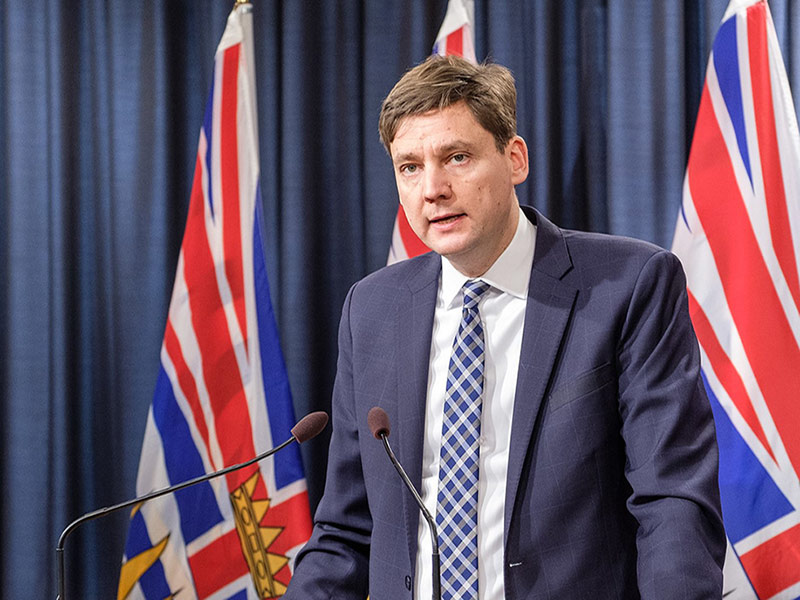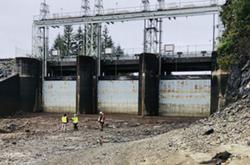British Columbia’s Housing Minister David Eby has experienced a remarkable conversion in his approach to the housing crisis. Two years ago, in his ongoing role as attorney general, he was very much on the side of those who blamed excess "demand" for rapidly elevating B.C. home prices, particularly the illicit demand generated by money launderers.
This approach led to the Speculation and Vacancy Tax on foreign owners and all owners who choose to leave their units empty, and the school surtax on all homes valued at more than $3 million. The aim of both was to moderate home price increases, particularly at the top of the market.
These and other moves by the newly formed NDP government were aimed at slowing the “overheated” housing market, based on the theory that outside money was a corrupting force. At the time, our local real estate industry players were not strong supporters.
But now, two years later, the industry has reason to enthuse about statements coming from our attorney general and housing minister. This week Eby announced that the province is not interested in applying more taxes targeted at corrupting demand. Now, doing a complete 180, he is saying that the solution is a "massive" increase in housing "supply.” And if cities are not willing to change policies to smooth the creation of additional supply in all neighbourhoods, the province is prepared to step in to make it happen.
Eby is not alone in this. Similar remarks are being made by important voices in many corners of the globe. In New Zealand, Australia, the United Kingdom, California and Texas, big conversations are being had about a globe-spanning housing affordability crisis.
In most places, the governments’ reactions tend to be the same: “If housing costs too much it must be because there is not enough supply." This is intuitively simple. “Economics 101!” they declare. The comments from Housing Minister Eby fall into this category.
Adding supply hasn’t worked
But is our crisis really a problem of supply? If anywhere in the world should have received the benefits of added supply by now it would be Vancouver.
Vancouver has added over 20,000 housing units in our downtown since the 1980s, becoming famous for that miraculous transformation in the process. Vancouver not long ago legalized over 20,000 basement suites. More recently the city legalized the construction of laneway houses in the backyards of every residential parcel, creating opportunities for new construction for more than 60,000 new units were that capacity to be fully utilized. As recently as 2019, city council voted to end single-family zoning citywide, enabling the legal duplex stratification of every city lot, each duplex allowed to have one rental suite. In this last action the city authorized over 150,000 new units.
All this additional and authorized new density should have, if supply was the problem, led to a drop in prices. But during this same period of two decades, Vancouver housing prices, judged on a per square foot of interior space basis, rose by an inflation-adjusted 300 per cent. So, while the theory of supply and demand may be unassailable, the empirical evidence clearly points in the opposite direction.
No one should fault decision leaders in Vancouver for not trying hard to encourage supply. I like to think I was one of them. In my opinion, Vancouver has already tried harder than anywhere else in North America to add housing supply in the hopes of lowering home prices and sadly it has not worked.
Well dear reader, you are right to ask the obvious question: "If prices are not going up because supply is limited, what's going on?"
In attempting to answer that, I scan other cities in North America and beyond and see that what’s happening in B.C. is happening elsewhere — whether they are adding housing slowly or quickly. It makes no difference if these cities are constraining supply like San Francisco, California, or letting it rip like Austin, Texas. Everywhere, housing prices are separating from the ability of average wage earners to afford homes. So, it's not about supply and it's not about B.C. and it's not about Vancouver. It's about a worldwide gap between what people are getting paid and what things cost, important things, valuable things, especially housing. It's called global asset price inflation and it's raging worldwide.
The peculiar nature of land price inflation
Why take my word for it? Pay attention instead to Nobel laureate Joseph Stiglitz who, although widely respected in the nearly hegemonic neoclassical school of economics, has long taken a contrary position when it comes to the subject of land price. While most economists just lump urban land together with factories, apartment buildings and cappuccino shops as “capital,” Stiglitz does not. He sets it aside as a form of “wealth” like the aforesaid coffee shop, but one that is not “productive” like real “capital” (the coffee shop).
The value of urban land, Stiglitz says, is entirely a function of its capacity to generate “rent.” Now when economists use the term rent they don’t mean it like you and I. They mean it as wealth that is by itself unproductive but still can generate a return on investment. It is not only urban land that can return this “rent.” Instances like monopoly control of a commodity can qualify. But for our purposes, and because the “rent” value of urban land (especially urban land used for housing) far exceeds the rent value of any other form of wealth worldwide, we can confine our thinking to urban land wealth alone.
We are closing in on the nub of our problem. Please note, Minister Eby: the value of urban land, Stiglitz says, has very little to do with supply and demand. As he wrote in 2015 (and hang in there, I will translate):
“One of the main drivers of land prices (or the value of other non-produced assets) is credit availability. As quantitative easing made so abundantly clear, a flood of liquidity can drive up asset prices. This is especially easy because, as I noted, land prices are largely untethered. If credit is made available to those with collateral and provided at interest rates below the expected rate of return, there will be a heavy demand for those assets (like land) that can easily be used as collateral. Thus, changes in monetary and regulatory policies that lead to an expansion of credit will contribute to an increase in ‘wealth’ — but not necessarily to an increase in the country’s real capital stock.”
Translation: When Stiglitz says urban land price is “untethered” he means that’s its price is not linked to its cost of production but is, like a diamond, worth what people think it’s worth. In Vancouver (and other places) this “untethered” value makes urban land especially prone to inflationary price increases when interest rates are low.
Interest rates have never been lower than they are now. Why? The pandemic has impelled the Bank of Canada, (and other global central banks), to increase the money supply (quantitative easing) — all to keep interest rates near zero in the hopes of preventing our economy from crashing, This cheap money, combined with the ability for investors to use any of their existing equity in rapidly inflating urban land value to leverage more of it (buying up a second or third property or apartment buildings), fuels the speculative frenzy in urban land value we are seeing now.
Stiglitz is hardly alone in this view. Our own William Vickrey, a native of Victoria who received the 1996 Nobel in economics the year he died, agreed. He similarly argued that urban land price speculation should be reined in with strategic taxes to raise money for social services, and that doing so would do no harm to the economy.
This is why David Eby's apparent about face is so painful. The global evidence suggests that stripping local authorities of the power to administer their own land uses is the exact opposite of what is needed.
Needed: More sophisticated thinking
Local zoning bylaws and development taxes are the only, and best, tools we have to quell out-of-control urban land price inflation. One way a municipality could dramatically stop land speculators from ratcheting up values, for example, would be to legally rezone much of their city for agricultural use only. That would drive land prices down to a tiny fraction of their current value.
No, it wouldn’t solve the housing crisis. But I mention this absurd example to make a simple point. Government actions to eliminate the constraints of zoning and development taxes won't help renters or owners afford housing but will only drive up profits for land speculators — whose passive gains are immense and go largely untaxed.
So where have we ended up? Hopefully in a more sophisticated place than “more supply equals cheaper homes.”
A better strategy is to insist on "massive" housing construction only if it is massive affordable construction. And then to enforce that agenda by employing the already legal tools of zoning controls and development taxes.
Only in this way can "massive" new construction produce homes affordable to the massive number of service workers and their families who need housing now. ![]()
















Tyee Commenting Guidelines
Comments that violate guidelines risk being deleted, and violations may result in a temporary or permanent user ban. Maintain the spirit of good conversation to stay in the discussion.
*Please note The Tyee is not a forum for spreading misinformation about COVID-19, denying its existence or minimizing its risk to public health.
Do:
Do not: